by Deep Green Resistance News Service | Jan 23, 2017 | Colonialism & Conquest
Featured image: Without access to their ancestral land, the Baka’s health has deteriorated and they face an uncertain future. © Survival International
by Survival International
An internal report commissioned by the World Wildlife Fund (WWF) into the impact of its conservation work in Cameroon on Baka “Pygmies” has been leaked after WWF denied it existed. It reveals:
—WWF knew that the Baka had not been consulted over the national parks which have taken over their land. However, the organization has since maintained publicly that there was “a high level of … community consent.”
—Some ecoguards patrolling the area “behave like masters and lords” towards the Baka, mounting “crackdowns” that are “terrifying.” Despite this, a WWF spokesman described the ecoguards as “performing their designated function of protecting the forests and securing the access and areas of forest communities, including … the Baka.”
—Many perpetrators of abuses are not disciplined when violations are reported by the communities “despite the communities’ condemnation, with proof.” WWF, however, continues to say publicly, “When unacceptable behavior has come to WWF’s attention… WWF has taken the issue up directly and emphatically with [the government], and improved behavior has seemed to follow.”
—“Most of the local villages are affected [by ecoguard abuse]” – but WWF maintained in a written submission to the OECD that “the possibility of ecoguard abuse does not currently seem to be a high priority for most Baka communities.”
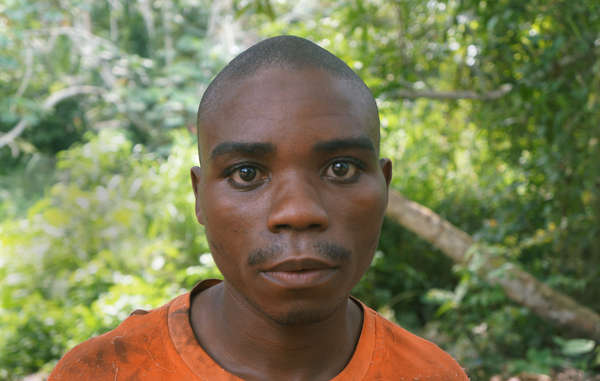
This Baka man was beaten by guards. Survival has spoken to dozens of similar victims across the Congo Basin.
© Survival International
Contrary to its own guidelines, WWF has never released the report, despite requests from Survival International and Baka activists. In an interview with the environmental magazine Mongabay, WWF’s “Head of Issues Management” Phil Dickie denied that WWF had commissioned any investigation into Survival’s allegations.
Survival International lodged a formal complaint in February 2016 with the Swiss National Contact Point of the OECD over WWF’s activities in Cameroon. The complaint was admitted in December 2016, the first time a non-profit organization has been scrutinized in this way.
One Baka man said: “The forest used to be for the Baka but not anymore. We would walk in the forest according to the seasons but now we’re afraid. How can they forbid us from going into the forest? We don’t know how to live otherwise. They beat us, kill us and force us to flee.”
Survival’s Director Stephen Corry said: “WWF commissions a report to look into its effect on the Baka, presumably including claims of abuse committed by the ecoguards it funds. The report confirms the abuse is widespread and routine. WWF then denies the report exists. It’s time for this big conservation organization to square up to the responsibilities it has to those who have seen their land stolen for conservation. And it’s time the world woke up to the horror that’s going on in the name of conservation. It’s not just Cameroon and not just WWF: the conservation industry has a history of taking tribal people’s land. It’s green colonialism and we’re doing all we can to fight it. Many conservationists know that tribal peoples are the best guardians of the natural world which is why the big conservation organizations should start listening to them rather than conspiring in their destruction.”
See here for a comparison of what WWF’s internal report says about Baka abuse with what WWF have said publicly, and what the Baka say. The full report is available on request.
“Pygmy” is an umbrella term commonly used to refer to the hunter-gatherer peoples of the Congo Basin and elsewhere in Central Africa. The word is considered pejorative and avoided by some tribespeople, but used by others as a convenient and easily recognized way of describing themselves.
by Deep Green Resistance News Service | Dec 18, 2016 | Colonialism & Conquest
Featured image: The Congo Basin tribes have lived sustainably in the forests of central Africa for generations.
© Selcen Kucukustel/Atlas
by Survival International
In an unprecedented protest, 19 “Pygmy” communities in central Africa have denounced conservation projects on their land. Eleven of the communities have urged conservationists to stop funding the anti-poaching squads who have abused them.
The Worldwide Fund for Nature (WWF) and the Wildlife Conservation Society (WCS) – two of the world’s biggest conservation organizations – have helped to create protected areas in the region from which tribal peoples have been illegally evicted.
The Baka and Bayaka “Pygmies” and their neighbors have endured years of violence, intimidation and abuse as a result of these conservation projects in Cameroon, the Congo, and the Central African Republic. But the organizations behind them, including WWF and WCS, have failed to change their approach, and continue to fund the squads.
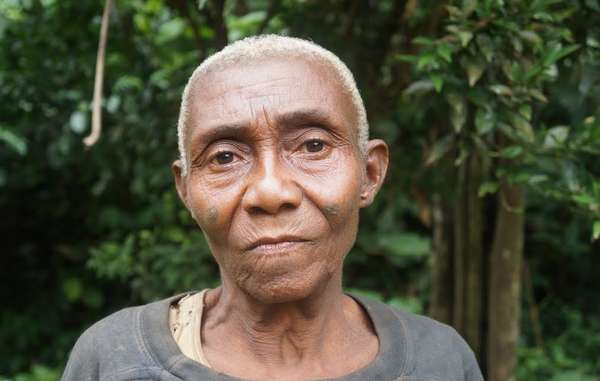
Ndoye, a Baka woman from Cameroon. Five people are reported to have died in her community alone at the hands of WWF-funded wildlife guards.
© Survival
In one letter Baka said: ”How are we going to survive in this world? We say to those who are giving money to [the conservationists]: ‘Do you want them to kill us?’ We no longer live well.”
Bayaka from the village of Socambo, said: “Despite the money that you provide to conserve the forest, we don’t benefit at all. Our ancestors lived perfectly well in this forest… Please think of us poor indigenous people who use our forest. We are fed up with how the project has cut us off from the forest.”
Bayaka from Mossapoula said: “We … are suffering a lot because of conservation. The guards threaten us, beat us, steal from us, even outside the park. And yet we have the right to enter the park. We ask you to come to Mossapoula before continuing your funding in order to hear our problems and seek our consent.”

Saki, a Bayaka woman whose husband was found murdered in the forest. From evidence at the scene, the family is convinced that he was killed by wildlife guards.
© Survival
The Bakwele chief of Ndongo said: “WWF has been coming here since 1996. We used to be very happy. But now we find ourselves marginalized and tormented in every way… We here are now only living on rice, really. Sir, your agents are very, very aggressive and we don’t want them to come here any more.
“In short, to those funders: if you have any projects, come to the field yourselves. I repeat: your agents are not here for work but for corruption. The guards have become the real poachers. They no longer respect the park limits. We no longer have access to the park.”
“Pygmies” face harassment and beatings, torture and even death while big game trophy-hunting tourists are encouraged. Tribal peoples are illegally evicted from large parts of their ancestral land and forced to live on roadsides where poverty and disease are rife. They have faced violence and plummeting health standards in the name of conservation – while WWF and WCS partner with logging companies like Rougier, CIB and SINFOCAM.
Survival’s Director Stephen Corry said: “As these powerful statements from “Pygmies” show, conservation projects are proving deadly for tribal peoples in the Congo Basin. As they see it, WWF and WCS have taken their land, ignored their rights, and continue to fund those abusing them. WWF and WCS have turned natural allies of conservation into its victims. The big conservation organisations really must start listening to these tribal peoples.”

Cameroonian wildlife guard Mpaé Désiré, who in 2015 was accused of beating Baka and in 2016 was arrested for involvement in the illegal wildlife trade.
© Facebook
Background briefing
– WWF has been active in the Congo Basin for decades. Survival first raised concerns over its proposed projects in 1991.
– The region is home to dense rainforests and several iconic species, including the giant pangolin, lowland gorilla and forest elephant. Tribal peoples like the Baka and Bayaka have been dependent on and managed this environment for generations.
– According to European Union reports, no logging activity in Cameroon is being carried out lawfully. Despite this, WWF has entered into partnerships with several companies who are active in the region.
– WWF cites the need to protect wildlife from poachers as the justification for funding, training and equipping wildlife guards. However, several of these guards have themselves been involved in the illegal wildlife trade. Earlier this year, for example, one guard, Mpaé Desiré was arrested for involvement in the illegal wildlife trade.
– A Baka man told Survival: “Guards used to open tins of sardines and leave them as bait to attract leopards, so they could hunt them for their skins.” Rainforest tribes have unparalleled knowledge of their environment, but WWF has instead put its faith in armed guards and corrupt officials.
Tribal peoples have been dependent on and managed their environments for millennia. Their lands are not wilderness. Evidence proves that tribal peoples are better at looking after their environment than anyone else. They are the best conservationists and guardians of the natural world. They should be at the forefront of the environmental movement.
But tribal peoples are being illegally evicted from their ancestral homelands in the name of conservation. The big conservation organizations are guilty of supporting this. They never speak out against evictions.
The big conservation organizations are partnering with industry and tourism and destroying the environment’s best allies.
Watch: Baka describe beatings and abuse at hands of anti-poaching squads.
“Pygmy” is an umbrella term commonly used to refer to the hunter-gatherer peoples of the Congo Basin and elsewhere in Central Africa. The word is considered pejorative and avoided by some tribespeople, but used by others as a convenient and easily recognized way of describing themselves
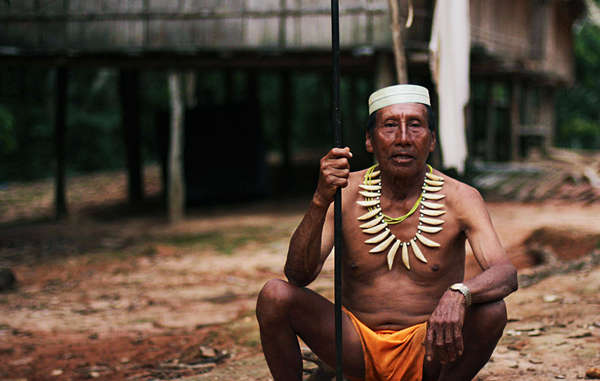
by Deep Green Resistance News Service | Oct 6, 2016 | Mining & Drilling
Featured image: Many contacted Matsés have expressed opposition to any efforts to contact their uncontacted neighbors, or to explore for oil in their territory. © Survival International
by Survival International
Survival International has learned that the Peruvian government is developing a “Master Plan” for a new national park that could pave the way for large-scale oil exploration. This will threaten the lives and lands of several uncontacted tribes.
The area, known in Spanish as the Sierra del Divisor [“Watershed Mountains”], is part of the Amazon Uncontacted Frontier, the region straddling the Peru-Brazil border that is home to the largest concentration of uncontacted tribal peoples on the planet.
A new plan for the area currently being drafted by Peru’s national parks agency SERNANP could enable oil companies to enter the park. It has further been reported that the new government wants to change the law to make it even easier to open up national parks to oil and gas operations.
The Sierra del Divisor National Park was created in 2015 to protect the region. The new plan could wipe out the uncontacted Indians, not all of whom have been recognized by the authorities.
A contacted Matsés woman said: “Oil will destroy the place where our rivers are born. What will happen to the fish? What will the animals drink?”
In 2016, Canadian oil company Pacific E&P cancelled a contract to explore for oil on nearby contacted Matsés territory, in the face of stiff opposition from the tribe.

The Watershed Mountains are a unique and highly diverse environment, home to many uncontacted tribal peoples.
© Diego Perez
However, it still has a contract to explore in the Watershed Mountains.
In 2012, it conducted the first phase of exploration, which Survival International and contacted Matsés campaigned against.
The more vulnerable uncontacted members of the tribe are still at risk, and not in a position to consent or object to the project. The environment that they have depended on and managed for millennia could be destroyed.
The oil exploration process uses thousands of underground explosions along hundreds of tracks cut into the forest to determine the location of oil deposits.
Uncontacted tribes are the most vulnerable peoples on the planet. All uncontacted tribal peoples face catastrophe unless their land is protected.
With a new Peruvian government in place, Survival and the indigenous organizations AIDESEP, ORPIO and ORAU are urging the government to think again.
Survival’s Director Stephen Corry said: “It’s in all our interests to fight for the land rights of uncontacted tribes, because evidence proves that tribal territories are the best barrier to deforestation. Survival is doing everything we can to secure their land for them.”
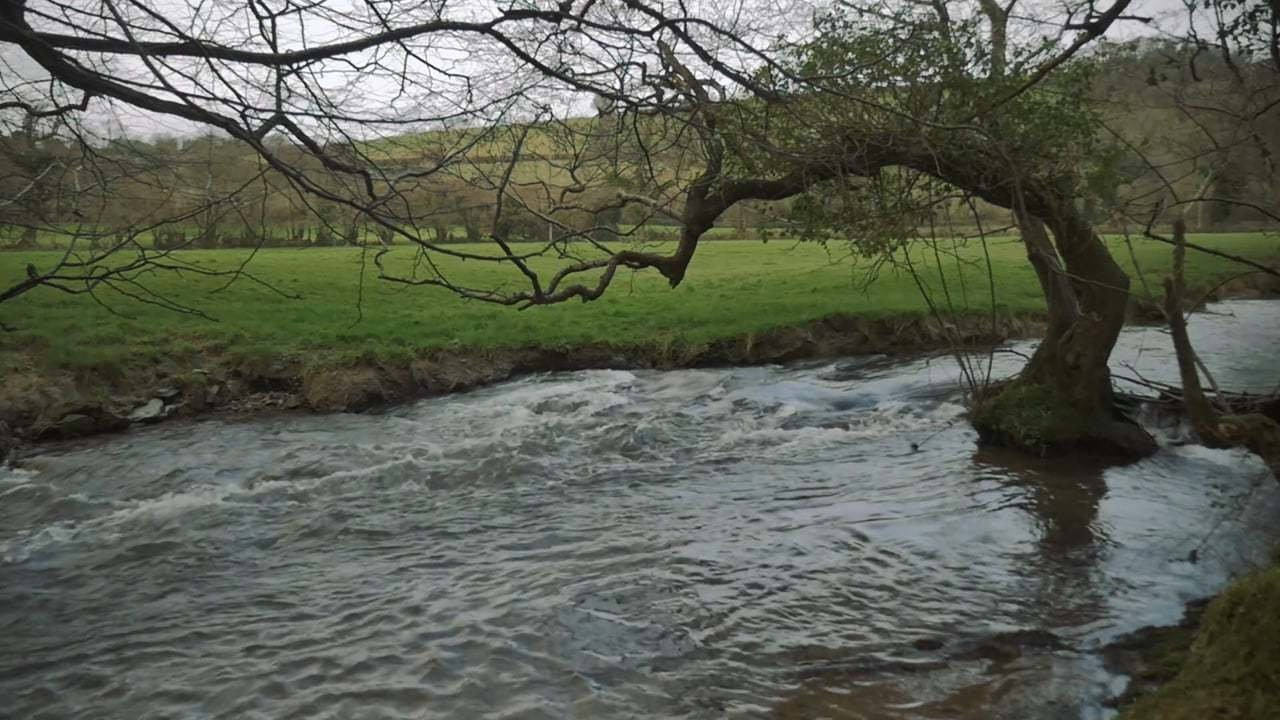
by Deep Green Resistance News Service | Aug 6, 2016 | Biodiversity & Habitat Destruction, Education, Lobbying
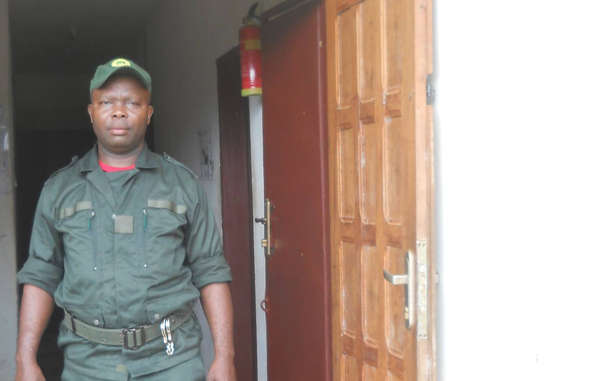
by Deep Green Resistance News Service | Jun 14, 2016 | Biodiversity & Habitat Destruction
Featured image: Cameroonian “ecoguard” Mpaé Désiré, who in 2015 was accused of beating Baka and in 2016 was arrested for involvement in the illegal wildlife trade. © Facebook
A new UN report has confirmed that corrupt officials are at the heart of wildlife crime in many parts of the world, rather than terrorist groups or tribal peoples who hunt to feed their families.
The reports’ findings have coincided with a wave of arrests of wildlife officials across Africa and Asia, raising concerns of a global “epidemic” of poaching and corruption among armed wildlife guards who are supposed to be protecting endangered species.
Recent conservation corruption arrests include:
-A wildlife guard in Cameroon, Mpaé Désiré, and a local police chief who were arrested on suspicion of involvement in the illegal ivory trade on the ancestral land of the Baka “Pygmies” and other rainforest tribes. Mr Mpaé has been accused by Baka of beating up tribespeople and torching one of their forest camps after accusing them of poaching.
The World Wildlife Fund (WWF) has been funding wildlife guards in this part of Cameroon since at least 2000, despite reports of guards arresting, beating and torturing tribal hunters.
One Baka man told Survival in 2013: “Ecoguards used to open tins of sardines and leave them as bait to attract leopards, so they could hunt them for their skins.”
Another said: “The ecoguards don’t want anyone in the forest at all so that no one hears the gunshots as they poach.”
Elsewhere:
– Four park employees in India have been arrested for involvement in poaching endangered one-horned rhinos in the notorious Kaziranga reserve, where wildlife guards are encouraged to shoot on sight anyone they suspect of poaching. 62 people have been killed there in just nine years.
– A forest officer has been arrested near Kaziranga after police found a tiger skin and ivory in his house.
– In the Pench tiger reserve in central India, a guard, named in reports as Vipin Varmiya, has been arrested for killing a tiger and her two cubs.
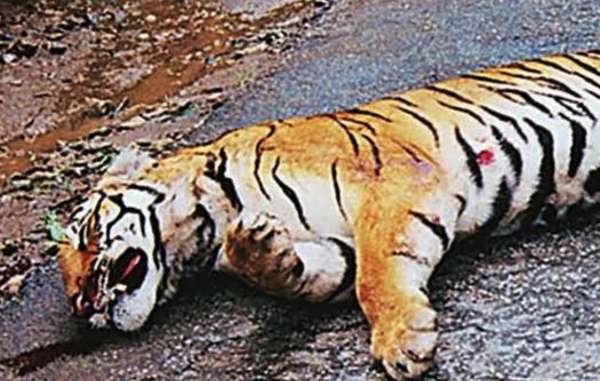
A tiger was allegedly killed by a park guard in Pench tiger reserve, India © Survival International
A recent Brookings Institution Report confirmed that the big conservation organizations are failing to tackle the true poachers – criminals conspiring with corrupt officials. The link between corruption and wildlife crime has also been reported in Tanzania, South Africa, Kenya, Zimbabwe, Uganda and Indonesia.
The involvement of armed guards in poaching, in countries where militarized conservation tactics are employed, raises questions over the advisability of using violence and intimidation to protect flora and fauna. In many parts of the world, armed conservation has led to violence against local tribal peoples, including in Cameroon, and in India where summary execution in the name of conservation is in danger of becoming more widespread.
In February 2016, Survival filed an OECD complaint against the World Wildlife Fund (WWF) for its involvement in funding repressive and often violent conservation projects in southeast Cameroon, rather than tackling the real poachers. Persecuting the environment’s best allies in place of real action to tackle these systemic problems is harming conservation.
Survival’s Director Stephen Corry said: “Conservation’s response to poaching has been to accuse local tribespeople when they hunt to feed their families, to support the use of shoot-to-kill policies and to blame terrorists. None of it works; it’s harming conservation. The true poachers are the criminals, including ecoguards, who conspire with corrupt officials. As the big conservation organizations partner with industry and tourism, they’re harming the environment’s best allies, the tribal peoples who have been dependent on and managed their environments for millennia. Tribespeople should be at the forefront of the environmental movement, they know who the poachers actually are, they can protect their land from logging, they protect biodiversity, and are better at looking after their environment than anyone else.”
Notes: Latest reports indicate Mr Mpaé has been released from custody and is awaiting trial.
“Pygmy” is an umbrella term commonly used to refer to the hunter-gatherer peoples of the Congo Basin and elsewhere in Central Africa. The word is considered pejorative and avoided by some tribespeople, but used by others as a convenient and easily recognized way of describing themselves.









